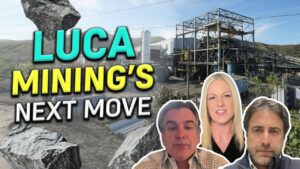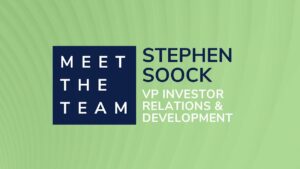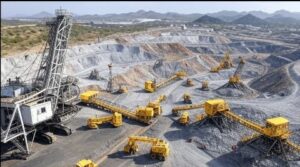$25 Million reduction in Company-wide capital, exploration and G&A expected for 2019
COEUR D’ALENE, Idaho–(BUSINESS WIRE)– Hecla Mining Company (NYSE:HL) today announced that it is taking action to reduce spending, consistent with its goal of operating on a cash neutral basis, following the heavy investment made in Nevada in the First and Second Quarters.
Highlights
- Significantly reduced planned development investment in Nevada while production continues.
- Expectations for Company-wide capital reduced by $12 million, exploration reduced by $9 million, G&A and other costs reduced by $4 million for a $25 million planned reduction in spending in 2019.
- Nevada production and cost estimates revised for 2019.
“Hecla has a strong commitment to operate within cash flow as demonstrated by the positive free cash flow over the past 3 years and longer,” said Phillips S. Baker, Jr., President and CEO. “However, the Nevada operations have not generated the cash flow we had hoped for so we are curtailing most development and reducing the workforce with the goal of the operation generating positive cash flow in the second half of the year. We still see lots of opportunities to improve costs, manage water, improve recoveries and explore but only plan to do it within cash flow.”
Mr. Baker continued, “We expect that with the company-wide reduction in spending Hecla will generate sufficient cash flow to nearly eliminate the need to borrow under the revolver by year end. If borrowing is required, we expect to be in compliance with the covenants.”
Nevada
A review has been conducted of the Nevada operations and changes are being made with the goal of turning it into a positive cash flowing unit.
The new approach is to mine the currently developed ore at Fire Creek. Mining at Midas is expected to continue through the end of the year, but Hollister will be shut down. As a result, 25% of the Nevada workforce is being laid off. Some surface exploration drilling and hydrology studies are still planned to gather information on the deposits to help make future development programs more successful.
Third-party ore processing arrangements are also being pursued to try and reduce the transportation and milling costs. This could include mills that can process ore that is considered refractory. With water discharge from Fire Creek more than double of a year ago, work is underway to increase discharge permits and change how the water is treated.
The Company is still committed to the exploration and definition of Hatter Graben, which is one of the key reasons the Nevada operations were acquired. However, the level of development activity is being curtailed to reduce the cash consumption, and the focus instead is expected to be on surface drilling with the goal of gaining more information on potential expansions of the deposit and to help plan the most efficient route to get to the deposit, once development is restarted.
The Company is providing revised annual 2019 Nevada production estimates of 60,000 ounces at a cost of sales of $105 million, a cash cost, after by-product credits of $1,200 per gold ounce and an all-in sustaining cost, after by-product credits, of $1,700 per gold ounce.
Revolving Line of Credit
The Company has reviewed its financial projections with its banking syndicate on the revolving line of credit and believes that there is and should continue to be at current projections, ample access to liquidity while the Company continues to evaluate the best options for refinancing its May 2021 bonds.
The Company continues to view the revolving line of credit as a short-term liquidity facility rather than a long-term source of funding and expects the amount drawn on the facility to be relatively steady at the end of the second and third quarters, and then to be reduced by year end, potentially being fully repaid at that time. The Company is working towards a goal of having a debt/EBITDA ratio of around 3.75 by year end and around 3.0 by the end of 2020.
Setting A Short-term Floor for Silver and Gold Prices
The Company has bought put contracts on 2.9 million ounces of silver and 93,000 ounces of gold which set a floor to the prices for each, locking in $14.73 per silver ounce and $1,318 per gold ounce for the next four months. Buying a put sets a floor on the price the Company could expect to receive but still maintains all of the upside, other than the transaction costs. More protection may be put in place for the rest of the year and part of next year. This move gives the Company confidence in the prices it will receive and reduces the risk of exceeding its revolver line of credit covenants.
2019 Production Outlook
Silver Production | Gold Production | Silver Equivalent | Gold Equivalent | |||||||||||||||||||||
| Original (if revised) | Current | Original (if revised) | Current | Original (if revised) | Current | Original (if revised) | Current | |||||||||||||||||
| Greens Creek | 7.7 | 7.7 | 50 | 50 | 24.0 | 24.0 | 305 | 305 | ||||||||||||||||
| Lucky Friday | 0.2 | 0.2 | N/A | N/A | 0.2 | 0.2 | N/A | N/A | ||||||||||||||||
| San Sebastian | 2.0 | 2.0 | 14 | 14 | 3.0 | 3.0 | 40 | 40 | ||||||||||||||||
| Casa Berardi | N/A | N/A | 150 | 150 | 11.7 | 11.7 | 150 | 150 | ||||||||||||||||
| Nevada Operations | 0.1 | 0.2 | 76 | 60 | 6.1 | 4.9 | 77 | 63 | ||||||||||||||||
| Total8 | 10.0 | 10.1 | 290 | 274 | 45.0 | 43.8 | 572 | 558 | ||||||||||||||||
2019 Cost Outlook
| Costs of Sales (million) | Cash cost, after by-product credits, | AISC, after by-product credits, per | ||||||||||||||||
| Original (if revised) | Current | Original (if revised) | Current | Original (if revised) | Current | |||||||||||||
| Greens Creek | $202 | $202 | $0 | $0 | $5.50 | $5.50 | ||||||||||||
| Lucky Friday | N/A | N/A | N/A | N/A | N/A | N/A | ||||||||||||
| San Sebastian | $41 | $41 | $9.00 | $9.00 | $12.00 | $12.00 | ||||||||||||
| Total Silver | $243 | $243 | $1.10 | $1.10 | $11.00 | $11.00 | ||||||||||||
| Casa Berardi | $210 | $210 | $850 | $850 | $1,150 | $1,150 | ||||||||||||
| Nevada Operations | $90 | $105 | $900 | $1,200 | $1,325 | $1,700 | ||||||||||||
| Total Gold8 | $300 | $315 | $875 | $950 | $1,250 | $1,325 | ||||||||||||
2019 Capital and Exploration Outlook
| Original (if revised) | Current | |||||
| 2019E Capital expenditures (excluding capitalized interest) | $150 million | $138 million | ||||
| 2019E Exploration expenditures (includes Corporate Development) | $25 million | $16 million | ||||
| 2019E Pre-development expenditures | $2.5 million | $2.5 million | ||||
| 2019E Research and Development expenditures | $3.5 million | $1 million | ||||
CONFERENCE CALL AND WEBCAST
A conference call and webcast will be held today, June 6, at 12:30 p.m. Eastern Time to discuss the information included in this news release. You may join the conference call by dialing toll-free 1-855-760-8158 or for international by dialing 1-720-634-2922. The participant passcode is HECLA. Hecla’s live and archived webcast can be accessed at www.hecla-mining.com under Investors or via Thomson StreetEvents Network.
ABOUT HECLA
Founded in 1891, Hecla Mining Company (NYSE:HL) is a leading low-cost U.S. silver producer with operating mines in Alaska, Idaho and Mexico, and is a growing gold producer with an operating mines in Quebec and Nevada. The Company also has exploration and pre-development properties in eight world-class silver and gold mining districts in the U.S., Canada, and Mexico.
Cautionary Statements Regarding Forward Looking Statements
This release contains and the telephone conference call referenced herein will contain “forward-looking statements” within the meaning of Section 27A of the Securities Act of 1933, as amended, and Section 21E of the Securities Exchange Act of 1934, as amended, which are intended to be covered by the safe harbor created by such sections and other applicable laws, including Canadian securities laws. Where a forward-looking statement expresses or implies an expectation or belief as to future events or results, such expectation or belief is expressed in good faith and believed to have a reasonable basis. However, such statements are subject to risks, uncertainties and other factors, which could cause actual results to differ materially from future results expressed, projected or implied by the forward-looking statements. Forward-looking statements often address our expected future business and financial performance and financial condition; and often contain words such as “anticipate,” “intend,” “plan,” “will,” “could,” “would,” “estimate,” “should,” “expect,” “believe,” “target,” “indicative,” “preliminary,” “potential” and similar expressions. Forward-looking statements in this news release may include, without limitation: (i) achieving the goal of operating on a cash neutral basis; (ii) 2019 company-wide capital, exploration, general and administrative (G&A) and other costs planned to be reduced by $25 million over the remainder of the year in an effort to improve cash flow; (iii) the goal of the Nevada operations generating positive cashflow in the second half of 2019; (iv) improving costs and recoveries at the Nevada operations; (v) company-wide reduction in spending expected to generate sufficient cash flow to nearly eliminate the need to borrow under the revolving credit facility (“Revolver”) by year end; (vi) any borrowings under the Revolver in 2019 are expected to be in compliance with Revolver covenants; (vii) continuing access to the Revolver; (viii) surface exploration drilling and hydrology studies at Fire Creek are still planned to gather information on the deposits to help future development programs be more successful; (ix) mining at Midas is also expected through 2019; (x) the ability to negotiate and enter into third-party ore processing/milling agreements; (xi) the ability to manage water issues at Fire Creek through obtaining increased permitted discharges and to change how water is treated; (xii) that surface drilling at Hatter Grabben will provide more information on potential expansions of the deposit and to help plan the most efficient development route to get to the deposit; (xiii) revised annual 2019 Nevada production estimates of 60,000 ounces at a cost of sales of $105 million, a cash cost, after by-product credits of $1,200 per gold ounce and an all-in sustaining cost, after by-product credits, of $1,700 per gold ounce; (xiv) the ability to refinance the Company’s bonds due in May 2021; (xv) expectation of the amount drawn on the Revolver to be relatively steady at the end of the second and third quarters, and then to be reduced by year end, potentially being fully repaid at that time; (xvi) the Company is working towards a goal of having a debt/EBITDA ratio of around 3.75 by year end and around 3.0 by the end of 2020; (xvii) that the put contracts entered into will (a) establish firm prices the Company will receive for its gold and silver production that is the subject of the contracts and (b) lessen the risk of the Company breaching certain financial covenants under the Revolver; (xviii) 2019 production outlook at our individual mines and the Company as a whole; (xix) 2019 cost outlook for the individual units and the Company as a whole; and (xx) 2019 capital and exploration outlook at the individual units and the Company as a whole. Forward-looking statements in the telephone conference call related to this release may include, without limitation: (1) we expect our assets to operate on a cash positive basis; (2) cash consumption is expected to be significantly lower and our future activities have a higher chance of success; (3) the limited development we plan at Fire Creek, we expect to mine all of the developed ore available for near-term production, primarily off of spiral 2 by early 2020; (4) of the expected production of 60,000 ounces of gold for the year in Nevada, 12,000 are expected in Q2 and 38,000 in the second half of the year; (5) We anticipate costs in Q2 will be about the same as Q1, but should improve in the second half of the year; (6) Over the second half we believe we will generate about $7 million of free cash flow in Nevada at current prices using this strategy; (7) We think the Nevada assets can be profitable over the long-term; (8) There is a lot of resources and mineralization and it is relatively high grade but the current cost per ton and development costs are too high. So we are going to be focused on the goals we started with, which was to improve the processes, lower the cutoff grade to move known resources into reserves, to improve the rate of development so we can have enough working faces and identify the ore so we can process it with better recoveries. We are approaching it on a slower pace so we have better control over the spend; (9) When we get to the end of mining primarily off spiral 2 in 2020 as we expect, we will see where we go from there. If the things we are working on come together then we would then mine off spirals 4 and 3. We will also look at how we can do enough development to drill the highest priority targets like Hatter Grabben; (10) While we will assess whether we have a triggering event to determine impairment at the end of the second quarter, I don’t currently anticipate that the potential impairment would be large; (11) We think we can improve the operations and results of Fire Creek; (12) First, our expectation was that Nevada would be about 18% of our 2019 revenues. We now think it will be 14%; (13) We expect exploration spending in Nevada for 2019 to be $3 million split almost equally between Fire Creek and Hatter Grabben; (14) The capital expenditure reductions are primarily in Nevada but we expect there will also be a little less at each of the operations; (15) While we have cut back we still have room to reduce costs more if necessary; (16) The $25 million reduction in expenditures should help us in our goal to operate on close to a cash-neutral basis during this time of relatively weak prices; (17) We have talked about our ability to pull levers to throttle back our activities if needed, and we are taking specific actions to do just that. This should help us with our line of credit covenants; (18) A financial step we have taken is buying puts on about 93k ounces of gold at $1318 and 2.9 million ounces of silver at $14.73 to assure Hecla’s revenue stream for the next four months; (19) Buying a put gives us a floor on the price we can expect, but we still maintain all of the upside, other than the transaction cost, so from an investor perspective we are lowering risk and still giving exposure to the upside, which we believe could be significant. Think of it as insurance; (20) We are considering putting more protection in place for the rest of the year and part of next year; (21) The lenders have reviewed our plans, and I believe they will modify the revolver to assure Hecla’s access to the capital we might need in current and projected price environments; (22) We expect our financial position to improve particularly in Q4; (23) We will continue to draw down and repay the revolver to fund working capital expenses, but when we look forward at our expected cashflow, we expect borrowings at the end of Q2 and Q3 to be about the same; (24) I think many of you have heard me say that when I came to Hecla 18 years ago that I was struck by the financial flexibility the company had to manage cash generation. I expect that we will see that flexibility over the next 18 months; (25) We think that Hecla can be cash-flow positive over the second half of 2019 and possibly generate as much as $50 million of free cash flow in 2020 at current prices; (26) We believe that cash generation can quickly change our debt to EBITDA ratios as commonly calculated; (27) We hope over the second half of the year to demonstrate Hecla’s cashflow generation potential, which we believe will help with the potential refinance of our bonds; (28) However, if the bond market doesn’t have enough appetite to place all the bonds or if the coupon is too expensive when we decide to refinance then Hecla would have a number of potential options; (29) The point is that with the quality of our assets and the jurisdictions they are in we believe we have a number of viable options in addition to the bond market that could materially change how much we need to refi in the bond market and at what price; and (30) We believe the Nevada issues are short term and the steps we are taking combined with the quality of our assets should maintain and improve the balance sheet.
Estimates or expectations of future events or results are based upon certain assumptions, which may prove to be incorrect, which could cause actual results to differ from forward-looking statements. Such assumptions, include, but are not limited to: (i) there being no significant change to current geotechnical, metallurgical, hydrological and other physical conditions; (ii) permitting, development, operations and expansion of the Company’s projects being consistent with current expectations and mine plans; (iii) political/regulatory developments in any jurisdiction in which the Company operates being consistent with its current expectations; (iv) the exchange rate for the USD/CAD and USD/MXN, being approximately consistent with current levels; (v) certain price assumptions for gold, silver, lead and zinc; (vi) prices for key supplies being approximately consistent with current levels; (vii) the accuracy of our current mineral reserve and mineral resource estimates; (viii) the Company’s plans for development and production will proceed as expected and will not require revision as a result of risks or uncertainties, whether known, unknown or unanticipated (ix) counterparties performing their obligations under hedging instruments; (x) sufficient workforce is available and trained to perform assigned tasks; (xi) weather patterns and rain/snowfall within normal seasonal ranges so as not to impact operations; (xii) relations with interested parties, including Native Americans, remain productive; (xiii) economic terms can be reached with third-party mill operators who have capacity to process our ore; (xiv) availability of a waiver or forbearance from the syndicate of lenders if required; (xv) there is no significant negative developments in the high yield bond market which impact the ability to finance notes when they mature; (xvi) maintaining availability of water rights; (xvii) factors do not arise that reduce available cash balances; and (xviii) sources of financing will be available to us and on terms acceptable to us.
In addition, material risks that could cause actual results to differ from forward-looking statements include, but are not limited to: (i) gold, silver and other metals price volatility; (ii) operating risks; (iii) currency fluctuations; (iv) increased production costs and variances in ore grade or recovery rates from those assumed in mining plans; (v) community relations; (vi) conflict resolution and outcome of projects or oppositions; (vii) litigation, political, regulatory, labor and environmental risks; (viii) exploration risks and results, including that mineral resources are not mineral reserves, they do not have demonstrated economic viability and there is no certainty that they can be upgraded to mineral reserves through continued exploration; (ix) the failure of counterparties to perform their obligations under hedging instruments; (x) our plans for improvements at our Nevada operations, including at Fire Creek, are not successful; (xi) we are unable to obtain covenant relief from the lenders under our revolving line of credit; (xii) we are unable to refinance our outstanding bonds due in May 2021; (xiii) our estimates full year performance at our Nevada operations are inaccurate; (xiv) we are forced to take a material impairment charge on our Nevada operations; (xv) litigation claims against us or our management relating to the Klondex acquisition cause us to incur significant costs or a material judgment is awarded against us; and (xvi) we are unable to obtain required financing at all or on terms acceptable to us. For a more detailed discussion of such risks and other factors, see the Company’s 2018 Form 10-K, filed on February 22, 2019, and Form 10-Q filed on May 9, 2019 with the Securities and Exchange Commission (SEC), as well as the Company’s other SEC filings. The Company does not undertake any obligation to release publicly revisions to any “forward-looking statement,” including, without limitation, outlook, to reflect events or circumstances after the date of this presentation, or to reflect the occurrence of unanticipated events, except as may be required under applicable securities laws. Investors should not assume that any lack of update to a previously issued “forward-looking statement” constitutes a reaffirmation of that statement. Continued reliance on “forward-looking statements” is at investors’ own risk.
Non-GAAP Measures
(Unaudited)
Reconciliation of Cost of Sales and Other Direct Production Costs and Depreciation, Depletion and Amortization (GAAP) to Cash Cost, Before By-product Credits and Cash Cost, After By-product Credits (non-GAAP) and All-In Sustaining Cost, Before By-product Credits and All-In Sustaining Cost, After By-product Credits (non-GAAP)
The table below presents reconciliations between the most comparable GAAP measure of cost of sales and other direct production costs and depreciation, depletion and amortization to the non-GAAP measures of (i) Cash Cost, Before By-product Credits, (ii) Cash Cost, After By-product Credits, (iii) AISC, Before By-product Credits and (iv) AISC, After By-product Credits for our operations at the Greens Creek, Lucky Friday, San Sebastian, Casa Berardi and Nevada Operations units and for the Company for the estimated amounts for the twelve months ended December 31, 2019.
Cash Cost, After By-product Credits, per Ounce is a measure developed by precious metals companies (including the Silver Institute) in an effort to provide a uniform standard for comparison purposes. There can be no assurance, however, that these non-GAAP measures as we report them are the same as those reported by other mining companies.
Cash Cost, After By-product Credits, per Ounce is an important operating statistic that we utilize to measure each mine’s operating performance. We have recently started reporting AISC, After By-product Credits, per Ounce which we use as a measure of our mines’ net cash flow after costs for exploration, pre-development, reclamation, and sustaining capital. This is similar to the Cash Cost, After By-product Credits, per Ounce non-GAAP measure we report, but also includes on-site exploration, reclamation, and sustaining capital costs. Current GAAP measures used in the mining industry, such as cost of goods sold, do not capture all the expenditures incurred to discover, develop and sustain silver and gold production. Cash Cost, After By-product Credits, per Ounce and AISC, After By-product Credits, per Ounce also allow us to benchmark the performance of each of our mines versus those of our competitors. As a primary silver and gold mining company, we also use these statistics on an aggregate basis. We aggregate the Greens Creek, Lucky Friday and San Sebastian mines to compare our performance with that of other primary silver mining companies and aggregate the Casa Berardi and Nevada Operations units to compare our performance with that of other primary gold mining companies. Similarly, these statistics are useful in identifying acquisition and investment opportunities as they provide a common tool for measuring the financial performance of other mines with varying geologic, metallurgical and operating characteristics.
Cash Cost, Before By-product Credits and AISC, Before By-product Credits include all direct and indirect operating cash costs related directly to the physical activities of producing metals, including mining, processing and other plant costs, third-party refining expense, on-site general and administrative costs, royalties and mining production taxes. AISC, Before By-product Credits for each mine also includes on-site exploration, reclamation, and sustaining capital costs. AISC, Before By-product Credits for our consolidated silver properties also includes corporate costs for general and administrative expense, exploration and sustaining capital projects. By-product credits include revenues earned from all metals other than the primary metal produced at each unit. As depicted in the tables below, by-product credits comprise an essential element of our silver unit cost structure, distinguishing our silver operations due to the polymetallic nature of their orebodies.
In addition to the uses described above, Cash Cost, After By-product Credits, per Ounce and AISC, After By-product Credits, per Ounce provide management and investors an indication of operating cash flow, after consideration of the average price, received from production. We also use these measurements for the comparative monitoring of performance of our mining operations period-to-period from a cash flow perspective.
The Casa Berardi and Nevada Operations sections below report Cash Cost, After By-product Credits, per Gold Ounce and AISC, After By-product Credits, per Gold Ounce for the production of gold, their primary product, and by-product revenues earned from silver, which is a by-product at Casa Berardi and Nevada Operations. Only costs and ounces produced relating to units with the same primary product are combined to represent Cash Cost, After By-product Credits, per Ounce and AISC, After By-product Credits, per Ounce. Thus, the gold produced at our Casa Berardi and Nevada Operations units is not included as a by-product credit when calculating Cash Cost, After By-product Credits, per Silver Ounce and AISC, After By-product Credits, per Silver Ounce for the total of Greens Creek, Lucky Friday and San Sebastian, our combined silver properties. Similarly, the silver produced at our other three units is not included as a by-product credit when calculating the similar gold metrics for Casa Berardi.
| In thousands (except per ounce amounts) | Estimate for Twelve Months Ended December 31, 2019 | |||||||||||||||||||||
Greens | Lucky | San | Corporate(3) | Total | ||||||||||||||||||
| Cost of sales and other direct production costs and depreciation, depletion and amortization | $ | 202,000 | $ | 41,000 | $ | 243,000 | ||||||||||||||||
| Depreciation, depletion and amortization | (45,000 | ) | (4,000 | ) | (49,000 | ) | ||||||||||||||||
| Treatment costs | 38,000 | 1,000 | 39,000 | |||||||||||||||||||
| Change in product inventory | (1,000 | ) | — | (1,000 | ) | |||||||||||||||||
| Reclamation and other costs | (1,000 | ) | (1,000 | ) | (2,000 | ) | ||||||||||||||||
| Cash Cost, Before By-product Credits (1) | 193,000 | 37,000 | 230,000 | |||||||||||||||||||
| Reclamation and other costs | 1,000 | 1,000 | 2,000 | |||||||||||||||||||
| Exploration | 2,000 | 3,500 | 5,500 | |||||||||||||||||||
| Sustaining capital | 42,000 | 1,500 | 43,500 | |||||||||||||||||||
| General and administrative | — | — | 40,000 | 40,000 | ||||||||||||||||||
| AISC, Before By-product Credits (1) | 238,000 | 43,000 | 321,000 | |||||||||||||||||||
| By-product credits: | ||||||||||||||||||||||
Zinc | (109,000 | ) | (109,000 | ) | ||||||||||||||||||
| Gold | (55,000 | ) | (19,000 | ) | (74,000 | ) | ||||||||||||||||
| Lead | (34,000 | ) | (34,000 | ) | ||||||||||||||||||
| Total By-product credits | (198,000 | ) | (19,000 | ) | (217,000 | ) | ||||||||||||||||
| Cash Cost, After By-product Credits | $ | (5,000 | ) | $ | 18,000 | $ | 13,000 | |||||||||||||||
| AISC, After By-product Credits | $ | 40,000 | $ | 24,000 | $ | 104,000 | ||||||||||||||||
| Divided by ounces produced | 7,700 | 2,000 | 9,700 | |||||||||||||||||||
| Cash Cost, Before By-product Credits, per Silver Ounce | $ | 25.06 | $ | 18.50 | $ | 23.71 | ||||||||||||||||
| By-product credits per ounce | (25.71 | ) | (9.50 | ) | (22.37 | ) | ||||||||||||||||
| Cash Cost, After By-product Credits, per Silver Ounce | $ | (0.65 | ) | $ | 9.00 | $ | 1.34 | |||||||||||||||
| AISC, Before By-product Credits, per Silver Ounce | $ | 30.91 | $ | 21.50 | $ | 33.09 | ||||||||||||||||
| By-product credits per ounce | (25.71 | ) | (9.50 | ) | (22.37 | ) | ||||||||||||||||
| AISC, After By-product Credits, per Silver Ounce | $ | 5.20 | $ | 12.00 |
| $ | 10.72 | |||||||||||||||
| In thousands (except per ounce amounts) | Estimate for Twelve Months Ended December 31, 2019 | ||||||||||||||
| Casa Berardi | Nevada Operations | Total Gold | |||||||||||||
| Cost of sales and other direct production costs and depreciation, depletion and amortization | $ | 210,000 | $ | 105,000 | $ | 315,000 | |||||||||
| Depreciation, depletion and amortization | (80,000 | ) | (25,000 | ) | (105,000 | ) | |||||||||
| Treatment costs | — | — | — | ||||||||||||
| Change in product inventory | (2,000 | ) | (1,000 | ) | (3,000 | ) | |||||||||
| Reclamation and other costs | 1,000 | (2,800 | ) | (1,800 | ) | ||||||||||
| Cash Cost, Before By-product Credits (1) | 129,000 | 76,200 | 205,200 | ||||||||||||
| Reclamation and other costs | 1,000 | 850 | 1,850 | ||||||||||||
| Exploration | 4,000 | 5,000 | 9,000 | ||||||||||||
| Sustaining capital | 43,000 | 24,000 | 67,000 | ||||||||||||
| AISC, Before By-product Credits (1) | 177,000 | 106,050 | 283,050 | ||||||||||||
| By-product credits: | — | ||||||||||||||
| Silver | (2,000 | ) | (4,000 | ) | (6,000 | ) | |||||||||
| Total By-product credits | (2,000 | ) | (4,000 | ) | (6,000 | ) | |||||||||
| Cash Cost, After By-product Credits | $ | 127,000 | $ | 72,200 | $ | 199,200 | |||||||||
| AISC, After By-product Credits | $ | 175,000 | $ | 102,050 | $ | 277,050 | |||||||||
| Divided by gold ounces produced | 150 | 60 | 210 | ||||||||||||
| Cash Cost, Before By-product Credits, per Gold Ounce | $ | 860 | $ | 1,279 | $ | 977 | |||||||||
| By-product credits per ounce | (13 | ) | (67 | ) | (29 | ) | |||||||||
| Cash Cost, After By-product Credits, per Gold Ounce | $ | 847 | $ | 1,203 | $ | 949 | |||||||||
| AISC, Before By-product Credits, per Gold Ounce | $ | 1,180 | $ | 1,768 | $ | 1,348 | |||||||||
| By-product credits per ounce | (13 | ) | (67 | ) | (29 | ) | |||||||||
| AISC, After By-product Credits, per Gold Ounce | $ | 1,167 | $ | 1,701 | $ | 1,319 | |||||||||
(1) Includes all direct and indirect operating costs related to the physical activities of producing metals, including mining, processing and other plant costs, third-party refining and marketing expense, on-site general and administrative costs, royalties and mining production taxes, before by-product revenues earned from all metals other than the primary metal produced at each unit. AISC, Before By-product Credits also includes on-site exploration, reclamation, and sustaining capital costs.
(2) The unionized employees at Lucky Friday have been on strike since March 13, 2017, and production at Lucky Friday has been limited since that time. For 2018 and 2017, costs related to suspension of full production totaling approximately $17.4 million and $17.1 million, respectively, along with $5.2 million and $4.2 million, respectively, in non-cash depreciation expense for that period, have been excluded from the calculations of cost of sales and other direct production costs and depreciation, depletion and amortization, Cash Cost, Before By-product Credits, Cash Cost, After By-product Credits, AISC, Before By-product Credits, and AISC, After By-product Credits.
(3) AISC, Before By-product Credits for our consolidated silver properties includes corporate costs for general and administrative expense, exploration and sustaining capital.
View source version on businesswire.com: https://www.businesswire.com/news/home/20190606005285/en/
Mike Westerlund
Vice President, Investor Relations
800-HECLA91 (800-432-5291)
Investor Relations
Email: hmc-info@hecla-mining.com
Website: www.hecla-mining.com
Source: Hecla Mining Company
Original Article: http://ir.hecla-mining.com/file/Index?KeyFile=398219085

















